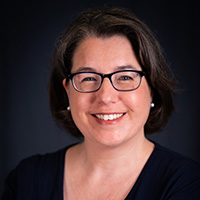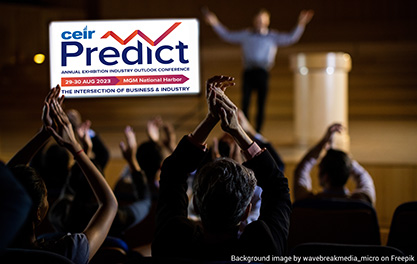By Joy Davis, CAE, Managing Director, Member Products, American Association of Pharmaceutical Scientists
It’s Ethics Awareness Month – a great time to look at the system you use to source and select programming for your meeting, and to ask yourself if it meets the promises you’ve made to members, speakers, and attendees.
The stage you create with your meeting is valuable, and you must manage the opportunities it presents as a resource. Yet the chance to speak to a room filled with people who can expand a speaker’s professional network and generate invitations to consult on revenue-laden projects often goes unacknowledged.
People speak at your meeting for all kinds of reasons, ranging from the speaker discount on registration to the opportunity to generate leads for their business. There’s tremendous pressure to ignore that reality, however. In the negotiation to get access to that value, speakers, volunteers, and others will talk down the opportunity your meeting presents for the same reason you’ll talk down a car you want to buy in negotiations with a dealer. Be careful of buying into the leveraging position of someone who’s negotiating a contract – written or otherwise – with you. You are going to expend a considerable amount of money, staff resources, and volunteer time to create that meeting and to persuade people to register for it. It’s a resource. Respect it as such and ensure everyone involved in choosing programming does as well.
As organizations that create spaces for interaction, it is incumbent upon us to distribute that value in a way that benefits everyone in that conversation – including members, speakers, moderators, and anyone else you are going to put in front of that hard-won audience. As we scramble to find the most interesting presentations and the most exciting speakers in order to deliver a program that draws a crowd, consider who might be shut out, and what you’ll lose when you do that.
An ethical approach to programming is one that continually asks: Is what we’re doing aligned with what we’ve promised? You made promises to everyone involved in delivering your meeting — attendees, members, volunteer leaders, staff, speakers, moderators, organizers, consultants – about how they would be treated.
With that in mind, assess your programming system, and how it grants access to your stage.
A good programming system is transparent and easily understood by everyone participating in it, whether they are submitting a proposal, assembling the program, or attending the event.
If your system is so convoluted that no one can understand it, I doubt it would pass a test of its ethics. Convolution is obfuscation: it uses confusion to lock out people who don’t have an insider to guide them through, and it makes it possible for insiders to leverage the programming system for their own purposes.
You have made promises about how you’ll distribute the value that your stage represents. They’re written in your organization’s mission and values and trumpeted by marketing about your meeting. How does your programming structure stack up against those claims? Questions you might ask:
- Who is invited to speak, and how?
- Are your program reviews blinded?
- Do you have your committee members acknowledge conflicts of interest and recuse themselves?
- When you fill the inevitable gaps in your program, how do you source presentations?
- Is the benefit to the speaker a fair trade for their time, or should you offer them some type of remuneration?
- What are the barriers to getting on your stage? Is it too expensive in some way to participate for some groups?
- Under what circumstances would you say “no” to a presentation?
- How do you handle repeat speakers? Are you sure the audience wants them?
These are just a few of the questions that come to mind for me. If you’ve got questions you think program planners should be asking, by all means, share them in the comments.
Meetings are more than a way to support an organization. They’re the opportunity for conversations that move ideas and insights forward. Make sure you’ve built a system that invites the discussions your industry needs, and that fulfills the highest calling of information exchange: to inspire.
About the Author

Joy Davis, CAE, has been working in meeting program development since before the invention of the iPhone. As Managing Director, Member Products of AAPS she oversees both the development of all of AAPS meetings, including its flagship PharmSci 360 meeting, and the engagement of its hundreds of members and volunteer leaders in those programs. She is currently a member of the ASAE Ethics Committee.
